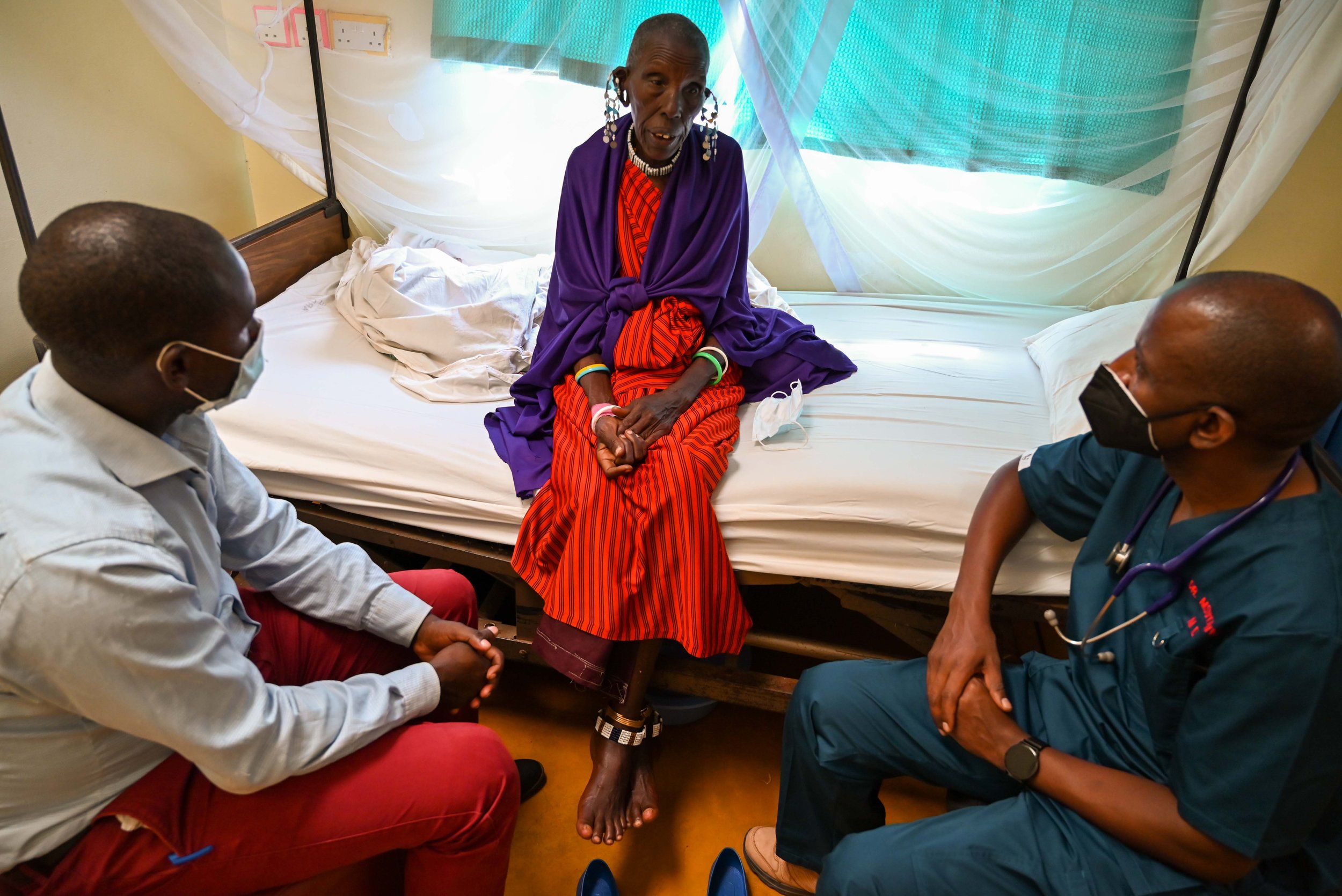Social Worker Kitashu Nganana, translates from Maasai to Swahili for Dr. Wasii Msuya, during a patient consultation.
Today FAME celebrates International Mother Language Day!
Mother Language Day is observed every year to promote linguistic and cultural diversity and multilingualism.
When FAME’s outpatient clinic was opened in 2008, 90% of our patients came from the Karatu area and predominately spoke Swahili, Tanzania’s main language used in the social, political, and educational sphere. However, 14 years later, our catchment area is now 85 miles and serves over 2.9 million people. Our unique location allows us to provide traditionally underserved populations with access to quality healthcare.
The populations we serve do not always speak Swahili, Tanzania’s official national language, or English, Tanzania’s working language after Swahili. While various ethnic groups in Tanzania typically speak multiple languages, predominantly using their mother tongue within their own communities, for some their mother tongue is all they know.
When we have patients at FAME who only speak their mother tongue, it is typically from our two largest ethnic groups that we serve: the Iraqw and the Maasai. In such cases, our Social Workers, Kitashu Nganana and Angela Obeid, translate for the doctors and ensure that the patient’s situation, needs, and wishes are understood and included in their treatment.
Mother languages provide unity in diversity and a connection to heritage. We value diversity within our all Tanzanian medical and professional team, who are recruited primarily from the catchment area that we serve. As a result, our staff understands the various local languages and dialects of our patients, and we are never short of translators! At FAME we are able to serve every patient who comes through our gate.









